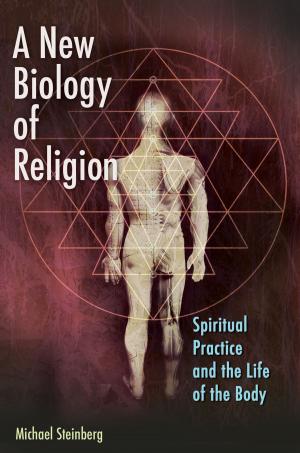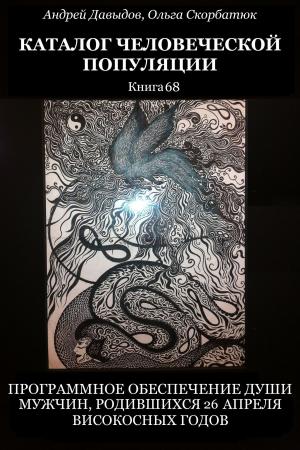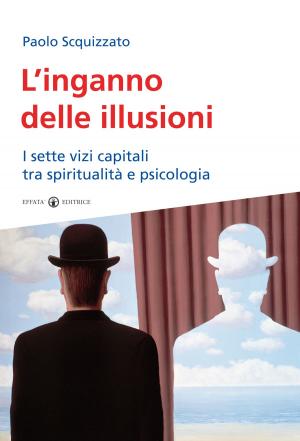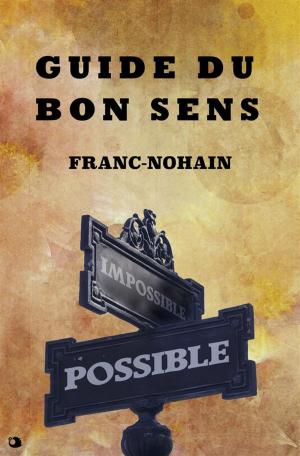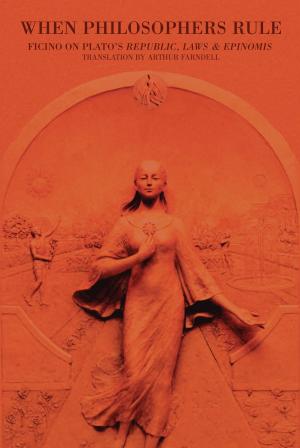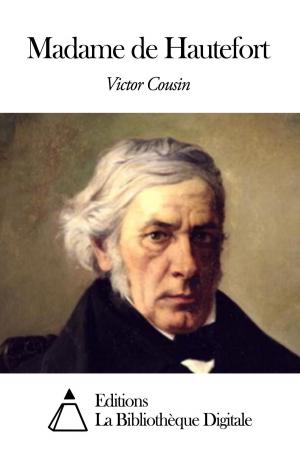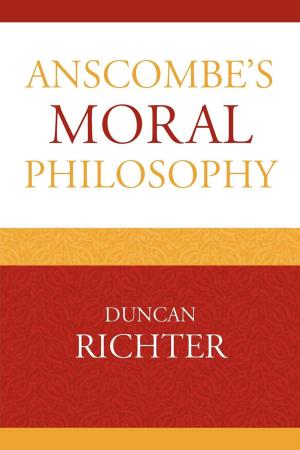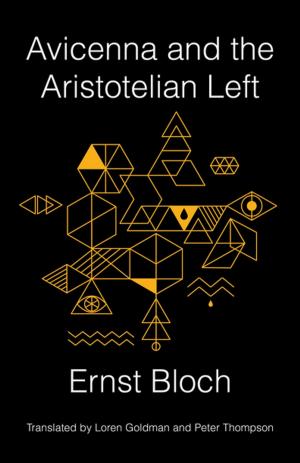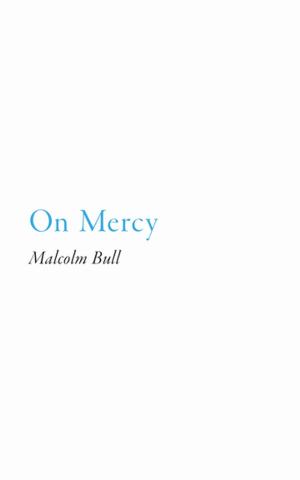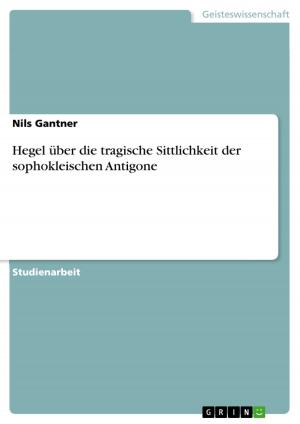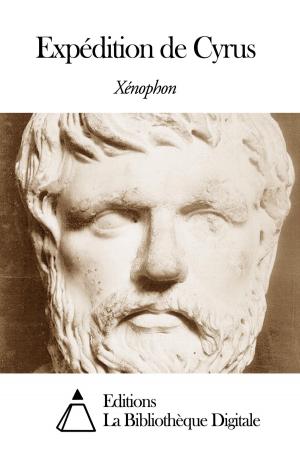World Order, Moral Disorder
An Enlightening Essay about Human Contradictions
Nonfiction, Social & Cultural Studies, Social Science, Sociology, Religion & Spirituality, Philosophy| Author: | Boris Spasov | ISBN: | 9782956049418 |
| Publisher: | Arcalis | Publication: | April 21, 2017 |
| Imprint: | Arcalis | Language: | English |
| Author: | Boris Spasov |
| ISBN: | 9782956049418 |
| Publisher: | Arcalis |
| Publication: | April 21, 2017 |
| Imprint: | Arcalis |
| Language: | English |
This essay entitled World Order Moral Disorder is essentially about contradictions inherent in human nature.
War and peace are discussed together with good and evil and we arrive at the question “is non war the same as peace?” An analysis of these two words underlines conflicting predilections within us: how can man go to war, i.e. break the peace, when whilst he is at war he is searching desperately for peace?
Can one know good if one has never known evil? These two opposing concepts feed off one another and we are led to ask ourselves if a certain amount of evil is not sometimes indispensable. This duality within us has extended to include the whole planet, hence the title “World Order” which generates the appendage “Moral disorder”. To address this issue the author makes use of a reading grid based upon human relations: trust, mistrust, defiance and violence and illustrates themes relating to the economy, sociology and politics.
Far from taking a pessimistic tone, this essay helps in our search for answers which will permit us to move towards a reorganised world order which takes into account the planetary issues with which we are faced today.
EXCERPT
Man continues to plan his future by repeating the errors of the past, following his thousand-year habit of considering peace as simply an interval between wars. Today, peace is dependent on the balance of power imposed by allegedly deterrent weapons, weapons supposedly held in respect and fear by potential enemies.
Do we not sometimes have the impression that history, our history, resembles a huge wheel turning faster and faster, but moving on the spot rather than advancing?
Maybe we’re too blind or too selfish, to envisage a blueprint for peace; we have thought more of and worked more for material progress, rather than spiritual and philosophical progress. But how can we separate mind from matter, how can we devise a dialogue for peace, when we have as a starting point the necessities of life to which we as humans are subject?
ABOUT THE AUTHOR
The “humanist” Boris Alexandre SPASOV, formerly Deputy Director of Radio Caribbean International, graduate of the Centre d’études diplomatiques et stratégiques in Paris and the author of several books including World Order- Moral Disorder & Humanity... What a Story! is above all a man of the people, a passionate and candid eyewitness far from the safe, comfortable couch ideologies and politically correct attitudes of our time.
War and peace are discussed together with good and evil and we arrive at the question “is non war the same as peace?” An analysis of these two words underlines conflicting predilections within us: how can man go to war, i.e. break the peace, when whilst he is at war he is searching desperately for peace?
Can one know good if one has never known evil? These two opposing concepts feed off one another and we are led to ask ourselves if a certain amount of evil is not sometimes indispensable. This duality within us has extended to include the whole planet, hence the title “World Order” which generates the appendage “Moral disorder”. To address this issue the author makes use of a reading grid based upon human relations: trust, mistrust, defiance and violence and illustrates themes relating to the economy, sociology and politics.
Far from taking a pessimistic tone, this essay helps in our search for answers which will permit us to move towards a reorganised world order which takes into account the planetary issues with which we are faced today.
EXCERPT
Man continues to plan his future by repeating the errors of the past, following his thousand-year habit of considering peace as simply an interval between wars. Today, peace is dependent on the balance of power imposed by allegedly deterrent weapons, weapons supposedly held in respect and fear by potential enemies.
Do we not sometimes have the impression that history, our history, resembles a huge wheel turning faster and faster, but moving on the spot rather than advancing?
Maybe we’re too blind or too selfish, to envisage a blueprint for peace; we have thought more of and worked more for material progress, rather than spiritual and philosophical progress. But how can we separate mind from matter, how can we devise a dialogue for peace, when we have as a starting point the necessities of life to which we as humans are subject?
ABOUT THE AUTHOR
The “humanist” Boris Alexandre SPASOV, formerly Deputy Director of Radio Caribbean International, graduate of the Centre d’études diplomatiques et stratégiques in Paris and the author of several books including World Order- Moral Disorder & Humanity... What a Story! is above all a man of the people, a passionate and candid eyewitness far from the safe, comfortable couch ideologies and politically correct attitudes of our time.
This essay entitled World Order Moral Disorder is essentially about contradictions inherent in human nature.
War and peace are discussed together with good and evil and we arrive at the question “is non war the same as peace?” An analysis of these two words underlines conflicting predilections within us: how can man go to war, i.e. break the peace, when whilst he is at war he is searching desperately for peace?
Can one know good if one has never known evil? These two opposing concepts feed off one another and we are led to ask ourselves if a certain amount of evil is not sometimes indispensable. This duality within us has extended to include the whole planet, hence the title “World Order” which generates the appendage “Moral disorder”. To address this issue the author makes use of a reading grid based upon human relations: trust, mistrust, defiance and violence and illustrates themes relating to the economy, sociology and politics.
Far from taking a pessimistic tone, this essay helps in our search for answers which will permit us to move towards a reorganised world order which takes into account the planetary issues with which we are faced today.
EXCERPT
Man continues to plan his future by repeating the errors of the past, following his thousand-year habit of considering peace as simply an interval between wars. Today, peace is dependent on the balance of power imposed by allegedly deterrent weapons, weapons supposedly held in respect and fear by potential enemies.
Do we not sometimes have the impression that history, our history, resembles a huge wheel turning faster and faster, but moving on the spot rather than advancing?
Maybe we’re too blind or too selfish, to envisage a blueprint for peace; we have thought more of and worked more for material progress, rather than spiritual and philosophical progress. But how can we separate mind from matter, how can we devise a dialogue for peace, when we have as a starting point the necessities of life to which we as humans are subject?
ABOUT THE AUTHOR
The “humanist” Boris Alexandre SPASOV, formerly Deputy Director of Radio Caribbean International, graduate of the Centre d’études diplomatiques et stratégiques in Paris and the author of several books including World Order- Moral Disorder & Humanity... What a Story! is above all a man of the people, a passionate and candid eyewitness far from the safe, comfortable couch ideologies and politically correct attitudes of our time.
War and peace are discussed together with good and evil and we arrive at the question “is non war the same as peace?” An analysis of these two words underlines conflicting predilections within us: how can man go to war, i.e. break the peace, when whilst he is at war he is searching desperately for peace?
Can one know good if one has never known evil? These two opposing concepts feed off one another and we are led to ask ourselves if a certain amount of evil is not sometimes indispensable. This duality within us has extended to include the whole planet, hence the title “World Order” which generates the appendage “Moral disorder”. To address this issue the author makes use of a reading grid based upon human relations: trust, mistrust, defiance and violence and illustrates themes relating to the economy, sociology and politics.
Far from taking a pessimistic tone, this essay helps in our search for answers which will permit us to move towards a reorganised world order which takes into account the planetary issues with which we are faced today.
EXCERPT
Man continues to plan his future by repeating the errors of the past, following his thousand-year habit of considering peace as simply an interval between wars. Today, peace is dependent on the balance of power imposed by allegedly deterrent weapons, weapons supposedly held in respect and fear by potential enemies.
Do we not sometimes have the impression that history, our history, resembles a huge wheel turning faster and faster, but moving on the spot rather than advancing?
Maybe we’re too blind or too selfish, to envisage a blueprint for peace; we have thought more of and worked more for material progress, rather than spiritual and philosophical progress. But how can we separate mind from matter, how can we devise a dialogue for peace, when we have as a starting point the necessities of life to which we as humans are subject?
ABOUT THE AUTHOR
The “humanist” Boris Alexandre SPASOV, formerly Deputy Director of Radio Caribbean International, graduate of the Centre d’études diplomatiques et stratégiques in Paris and the author of several books including World Order- Moral Disorder & Humanity... What a Story! is above all a man of the people, a passionate and candid eyewitness far from the safe, comfortable couch ideologies and politically correct attitudes of our time.

